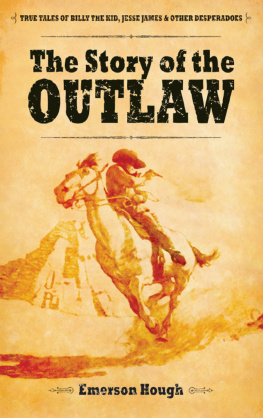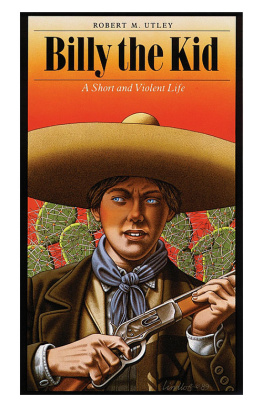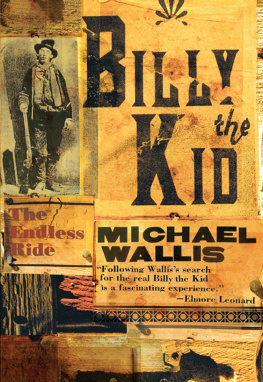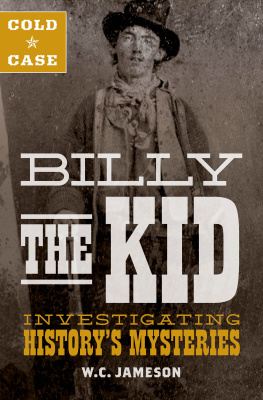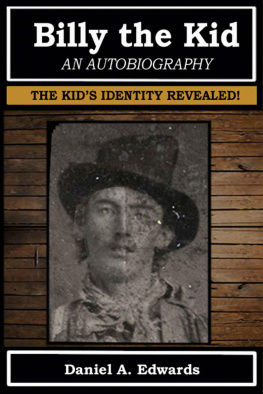New Material 2009 by Sunstone Press. All Rights Reserved.
No part of this book may be reproduced in any form or by any electronic or mechanical means including information storage and retrieval systems without permission in writing from the publisher, except by a reviewer who may quote brief passages in a review.
Sunstone books may be purchased for educational, business, or sales promotional use.
For information please write: Special Markets Department, Sunstone Press, P.O. Box 2321, Santa Fe, New Mexico 87504-2321.
Library of Congress Cataloging-in-Publication Data
Hunt, Frazier, b. 1885.
The tragic days of Billy the Kid: facsimilie of 1956 edition / by Frazier Hunt; new foreword by Robert G. McCubbin.
p. cm. -- (Southwest heritage series)
Originally published: New York: Hastings House, 1956.
ISBN 978-0-86534-717-5 (softcover: alk. paper)
ISBN 978-1-61139-235-7 (e-book)
1. Billy, the Kid. 2. Outlaws--Southwest, New--Biography. 3. Frontier and pioneer life--Southwest, New. 4. Southwest, New--Biography. I. Title.
F786.B695 2009
364.1552092-dc22
[B]
2009011412
WWW.SUNSTONEPRESS.COM
SUNSTONE PRESS / POST OFFICE BOX 2321 / SANTA FE, NM 87504-2321 /USA (505)
988-4418 / ORDERS ONLY (800) 243-5644/ FAX (505) 988-1025
T he Southwest Heritage Series is dedicated to Jody Ellis and Marcia Muth Miller, the founders of Sunstone Press, whose original purpose and vision continues to inspire and motivate our publications.
I
THE SOUTHWEST HERITAGE SERIES
"The past is not dead. In fact, it's not even past."
William Faulkner, Requiem for a Nun
T he history of the United States is written in hundreds of regional histories and literary works. Those letters, essays, memoirs, biographies and even collections of fiction are often first-hand accounts by people who wanted to memorialize an event, a person or simply record for posterity the concerns and issues of the times. Many of these accounts have been lost, destroyed or overlooked. Some are in private or public collections but deemed to be in too fragile condition to permit handling by contemporary readers and researchers.
However, now with the application of twenty-first century technology, nineteenth and twentieth century material can be reprinted and made accessible to the general public. These early writings are the DNA of our history and culture and are essential to understanding the present in terms of the past.
The Southwest Heritage Series is a form of literary preservation. Heritage by definition implies legacy and these early works are our legacy from those who have gone before us. To properly present and preserve that legacy, no changes in style or contents have been made. The material reprinted stands on its own as it first appeared. The point of view is that of the author and the era in which he or she lived. We would not expect photographs of people from the past to be re-imaged with modern clothes, hair styles and backgrounds. We should not, therefore, expect their ideas and personal philosophies to reflect our modern concepts.
Remember, reading their words and sharing their thoughts is a passport back into understanding how the past was shaped and how it influenced today's world.
Our hope is that new access to these older books will provide readers with a challenging and exciting experience.
II
FOREWORD TO THIS EDITION
By
Robert G. McCubbin
President, Wild West History Association
H ow did a young fellow in remote New Mexico Territory, who lived to be only twenty one, become internationally known? Why is Billy the Kid the most familiar name in New Mexico more than one hundred and twenty five years after his death?
The answer? To begin with, he lived during what became known as the Wild Westa time and a place of disorder, violence, fighting, and killing; a time and place dominated by undisciplined and untamed men and women. In that environment, young Billy packed a tremendous amount of excitement into the final four years of his short life.
Henry McCarty, alias Henry Antrim, alias Kid, wandered into southeastern New Mexico at the age of seventeen. There he took up yet another alias, William Bonney, and soon found himself caught up in events that were none of his doing. He responded with actions Sherriff Pat Garrett described as, not the outgrowth of an evil disposition, nor caused by unchecked youthful indiscretions, but the result of untoward, unfortunate circumstances acting upon a bold, reckless, ungoverned and ungovernable spirit, which no physical restraint could check, no danger appall, and no power less potent than death could conquer.
Young Billy had an appealing personality. He was described by many who knew him as being jovial, fun-loving, happy, cheerful, pleasant, courteous, loved to dance, loved to sing, yet always ready to rise to a challenge. Jim East, one of Garrett's posse that captured the Kid, wrote of another side. It was strange to see a boy of eighteen have such power over older and no question desperate men.
Paulita Maxwell, a teenage girl in Fort Sumner in the time of the Kid and whom many believe was herself a girlfriend of his, said many years later, Billy the Kid, I may tell you, fascinated many women. His record as a heart-breaker was quite formidable. Three girls at least in Fort Sumner were mad about him. Not only were the girls and women of his time attracted to himsome still are to this day!
Interest in Billy is further increased by the mystery surrounding his early life. A century and a quarter after his death, in spite of much diligent research, firm answers are still yet to be found as to where and when he was born and what his real name was at birth. The most likely place of birth was, surprisingly, New York City, and his most likely name, William Henry McCarty.
Finally, what seemed a minor thing that happened toward the end of his life would dramatically influence his place in history. Although he was known to his friends simply as Billy or Kid, the press of the time dubbed him Billy the Kid"a name that is not easily forgotten and which assured that young Henry McCarty would forever live on in history.
Originally published in 1956, The Tragic Days of Billy the Kid by Frazier Hunt was the first to utilize the research of Maurice G. Fulton of Roswell, New Mexico, as well as that of J. Evetts Haley of Texas. Both were diligent researchers and conducted interviews in the 1920s and 1930s with survivors of the Billy the Kid days who shared first hand information, insights, and opinions. Both Fulton and Haley intended to someday write a biography of Billy the Kid, but neither ever did.
Fulton's correspondence indicates he supplied Frazier Hunt with much material, but at the same time was frustrated by Hunt's approach to history. While Fulton believed in straight history, Hunt wrote that he wanted to write fast moving, dramatic, and romantic historical-biography.... I want it to be accurate, full and written as well as I am capable of doing. He was indeed capable of doing it well. J. Evetts Haley wrote, Hunt was an outstanding American patriot and man of letters. Hunt gives us an authentic and exciting read while presenting a believable and human Billy the Kid.


